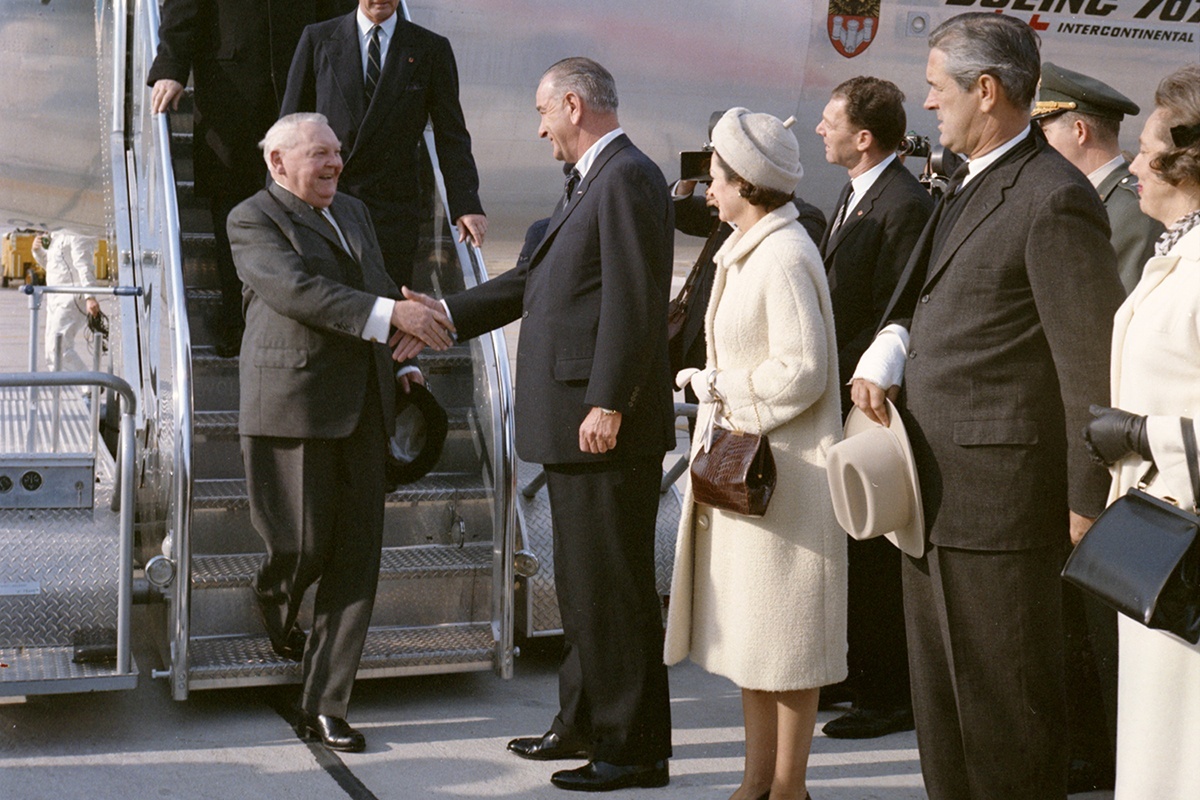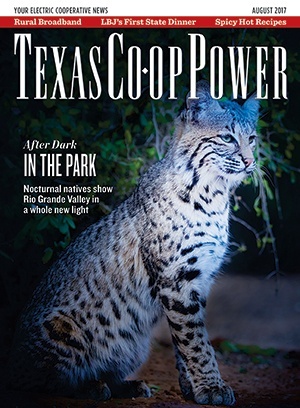On November 25, 1963, Ludwig Erhard, the chancellor of what was then West Germany, was scheduled to arrive in Washington, D.C., for a state visit with President John F. Kennedy. The event would take place with full military honors and a formal black-tie dinner. The Washington Post carried a story and details of the upcoming visit in its Friday edition, November 22, the day the president was assassinated in Dallas. Erhard ended up going to Washington one day early to attend the funeral of the young president.
Erhard’s state visit was rescheduled for just one month later, but instead of the pomp and circumstance originally planned, this one would offer a truly Texan experience. Lyndon B. Johnson made the decision to brand his own personality—and that of his home state—on the revised agenda.
Erhard arrived at Austin’s Bergstrom Air Force Base on December 28. Johnson had spent Christmas at the LBJ Ranch outside Johnson City, entertaining reporters and visiting relatives, but now he was in Austin to greet the chancellor as he stepped off the plane to the stirring sounds of a military band. Gov. John Connally was there, his right arm in a sling, a grim reminder of the wounds he had suffered in Dallas just five weeks before.
After a few formal words of greeting, helicopters defined a wide arc over the state Capitol, speeding the president and the chancellor toward the Hill Country and the LBJ Ranch. Johnson’s house, near the cantankerous Pedernales River, was bedecked with West German flags.
Accommodations were somewhat cramped. Lady Bird Johnson gave up her bedroom, and staff members doubled up wherever they could. The transformation from ranch headquarters to Texas White House had just begun. With Secretary of State Dean Rusk and the German foreign minister in attendance, diplomatic talks began but soon shifted into one of Johnson’s famous tours of the ranch.
The next day was a Sunday, which began with a visit to nearby Fredericksburg, a community that bears the imprint of its German settlers to this day. The mayor’s welcoming speech was in German, but that was just the beginning. As Johnson biographer Robert Caro tells it in The Passage of Power, “Then they went to church, where the hymns and Silent Night were sung in German; when, after the ceremony, Erhard told the pastor he had been surprised by that, the pastor told him that the hymns were always sung in German.”
The state dinner took place in tiny Stonewall’s high school gymnasium, a wooden structure barely adequate for a local commencement ceremony, much less an international event. Townsfolk applied a few dabs of paint and jammed 30 tables onto the basketball court to make it work. Caro noted that the fare included “five hundred pounds of brisket and three hundred pounds of spareribs … together with hickory gravy, German potato salad, Texas coleslaw, ranch baked beans and sourdough biscuits.”
Time magazine reported: “Erhard was enchanted with all the trimmings—including the gift of a ten-gallon hat and a choral rendition of Tief in Dem Herzen Von Texas [Deep in the Heart of Texas].” Country music and a Mexican mariachi band gave way later in the evening to Texan Van Cliburn on a grand piano.
As Caro summed up this Hill Country state dinner, “Formal the dinner may not have been; it was, however, a triumph. Erhard’s smile grew broader and broader with each German song.”
The chancellor loved it all. Johnson’s brand of German-American diplomacy had reinforced a key relationship with a crucial Cold War ally and charmed newspaper reporters who began to see a depth to Johnson beneath the rough-edged Texan, a president taking charge in his own way.
——————–
David Latimer lives in Austin and teaches at Austin Community College.


